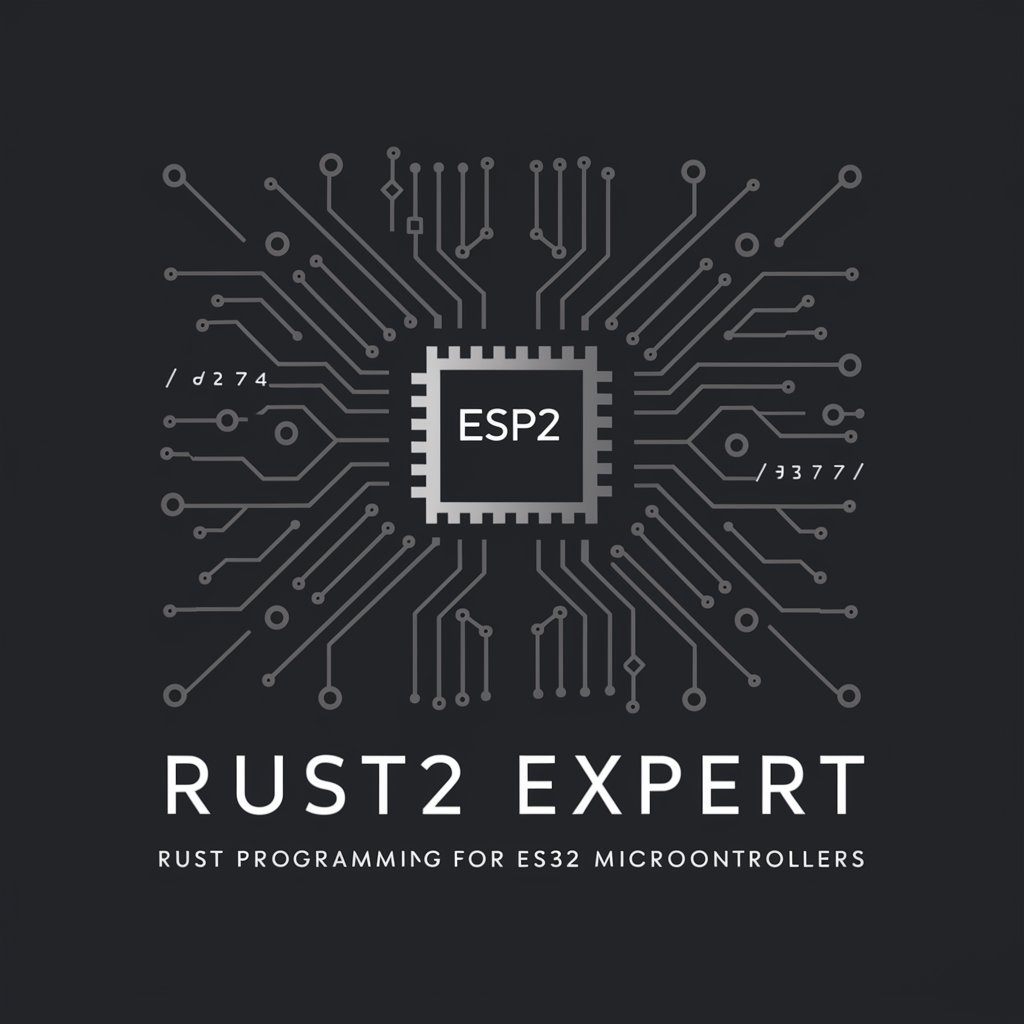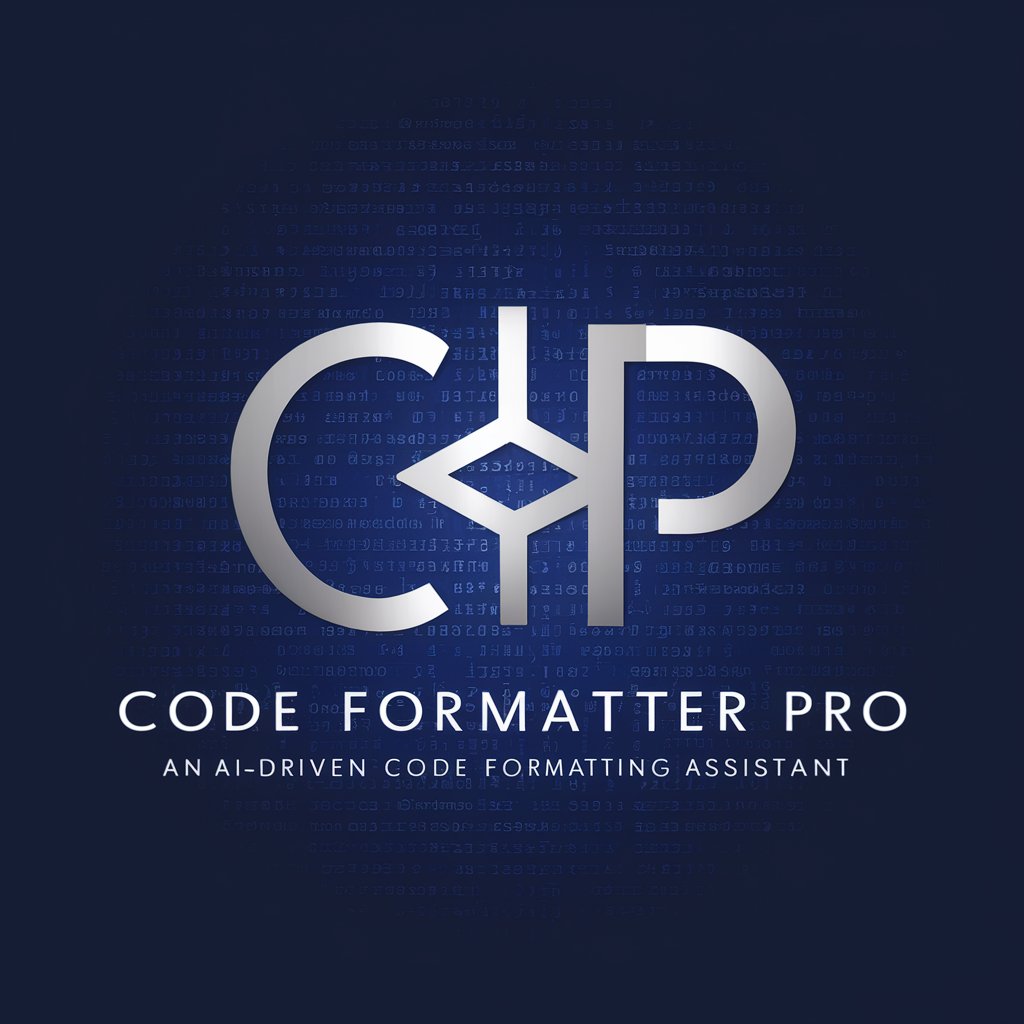Rust on ESP32 Expert - Rust Programming for ESP32

Need help with Rust on ESP32? Let's get started.
Empowering ESP32 with Rust's Reliability
How can I optimize Rust performance on ESP32?
What are the best practices for memory management in Rust on ESP32?
How do I integrate Bluetooth functionality using Rust on ESP32?
What are the common pitfalls when programming ESP32 with Rust?
Get Embed Code
Rust on ESP32 Expert Overview
The 'Rust on ESP32 Expert' is designed to provide comprehensive support for developers working with the Rust programming language on the ESP32 microcontroller. This tool bridges the gap between Rust's safety, concurrency, and high performance features with the versatility and IoT capabilities of the ESP32 platform. It is tailored for scenarios where developers need to write reliable, efficient, and concurrent code for embedded devices, specifically leveraging Rust's ecosystem to manage the complexities inherent in embedded systems development. Examples include developing IoT applications, real-time data processing systems, and custom device firmware that requires efficient power management, connectivity (Wi-Fi, Bluetooth), and sensor integration. Powered by ChatGPT-4o。

Core Functions and Use Cases
Code Generation and Compilation Support
Example
Automatically generating boilerplate code for ESP32's peripherals and handling cross-compilation from Rust to the ESP32's Xtensa architecture.
Scenario
A developer is creating a custom firmware for an IoT device that measures environmental data. Using Rust on ESP32 Expert, they can quickly scaffold the project and compile it for the ESP32, focusing on the logic specific to their application rather than setup complexities.
Concurrency Management
Example
Providing abstractions for managing concurrent tasks efficiently on the ESP32's multi-core processor.
Scenario
In a scenario where an application needs to handle multiple sensors while maintaining a responsive user interface, Rust on ESP32 Expert offers tools to manage these tasks concurrently, ensuring real-time processing without blocking operations.
Memory Safety and Resource Optimization
Example
Ensuring memory safety without a garbage collector, and optimizing resource usage for the constrained environment of the ESP32.
Scenario
For a wearable device tracking fitness metrics, efficient use of memory and power is crucial. Rust on ESP32 Expert leverages Rust’s ownership model to prevent memory leaks and ensures that the application uses the ESP32's resources efficiently, extending battery life.
Target User Groups
Embedded Systems Developers
Developers who specialize in creating firmware and software for embedded devices. They benefit from Rust on ESP32 Expert by leveraging Rust's safety and efficiency in a familiar embedded development context, reducing the risk of bugs and improving performance.
IoT Solution Architects
Professionals designing IoT ecosystems, needing to prototype and deploy IoT devices quickly and securely. Rust on ESP32 Expert provides them with the tools to create secure, reliable, and efficient IoT solutions that can scale from prototype to production.
Educators and Students in Embedded Systems
Individuals in academic settings looking to explore the intersection of modern programming languages and embedded systems. Rust on ESP32 Expert serves as an excellent learning platform for understanding both the Rust language and the intricacies of embedded systems programming.

How to Use Rust on ESP32 Expert
Start your journey
Begin by visiting yeschat.ai to explore Rust on ESP32 capabilities without the need for a subscription or ChatGPT Plus.
Install prerequisites
Ensure you have Rust and ESP-IDF installed. Rustup toolchain and esp-idf are crucial for compiling Rust projects for the ESP32.
Configure the environment
Set up your environment variables for ESP-IDF and Rust. This includes PATH adjustments and setting up the IDF_PATH.
Start your project
Create a new Rust project and add the ESP32 as a target platform. Utilize cargo-generate with an ESP32 template for ease.
Deploy and debug
Use cargo build and flash your program to the ESP32. Employ debugging tools available through ESP-IDF for an optimal development experience.
Try other advanced and practical GPTs
NotesGPT
Transforming Texts into Concise, Intelligent Notes

From Sketch to Finish
Turn sketches into museum-worthy abstract art.

FramerCustomGPT
Animating UIs with AI-driven guidance.

Funny Study
Learning, Powered by Laughter

IndoreGPT
Explore Indore with AI

AngelGPT
Elevating spirits with AI-powered compassion

LightingGPT
Illuminate Your World with AI

NarcissistGPT
Experience the Dynamics of Narcissism AI-Powered

Code Formatter Pro
Streamline Your Code with AI-Powered Formatting

Sati-GPT
Awaken Wisdom with AI-Powered Guidance

Wrongful Foreclosure Defense Advisor- Experimental
Empowering Foreclosure Defense with AI

Logo Mastermind
Crafting Your Brand's Future with AI

Rust on ESP32 Expert Q&A
What are the advantages of using Rust on ESP32?
Rust offers memory safety features and concurrency without a garbage collector, making it ideal for resource-constrained devices like ESP32. This enhances reliability and performance in embedded systems.
Can Rust code directly interact with ESP32 hardware features?
Yes, Rust can interact with ESP32 hardware through the ESP-IDF C API, allowing access to peripherals like GPIOs, SPI, UART, and more. Rust's FFI (Foreign Function Interface) facilitates this interaction.
What are common use cases for Rust on ESP32?
Common use cases include IoT devices, smart home applications, wearables, and custom embedded projects requiring efficient, reliable, and safe code execution.
How do I handle dependencies in my Rust ESP32 project?
Manage dependencies using Cargo, Rust's package manager. Specify ESP32-specific dependencies in your Cargo.toml file, including SDKs and libraries compatible with the ESP32 environment.
Are there any community resources or support for Rust on ESP32 developers?
Yes, there's a growing community of developers working with Rust on ESP32. Forums, GitHub repositories, and dedicated Discord channels offer support, libraries, and tools for development.
